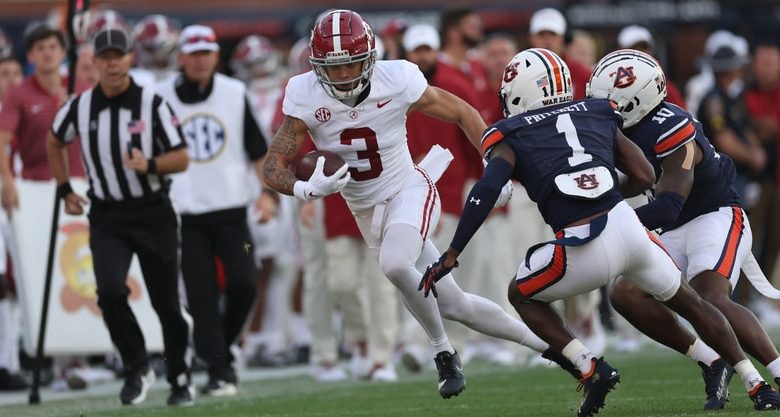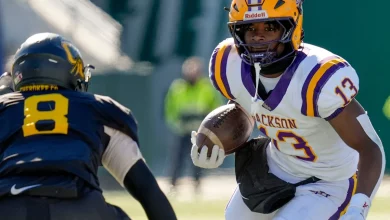Are the NIL Tax Shields in Georgia and Alabama constitutional? Most likely.

The world of college athletics has been dramatically transformed in recent years, particularly by the introduction of Name, Image, and Likeness (NIL) rights for student-athletes. Since the NCAA’s historic policy change in 2021, which allowed athletes to profit from their own names, images, and likenesses, the landscape of college sports has been evolving rapidly. This change has led to new opportunities, but also new challenges—especially in the realm of taxation. As states like Georgia and Alabama have implemented NIL tax shields to attract and retain top-tier talent, questions surrounding the constitutionality of these initiatives have emerged.
The NIL tax shields in Georgia and Alabama essentially offer tax incentives to student-athletes, either by exempting income from certain taxes or providing favorable treatment in tax laws. These initiatives are designed to give the states an edge in the highly competitive college recruiting process, particularly for football and basketball, where top prospects often receive offers from institutions across the country. But do these initiatives run afoul of the U.S. Constitution? The answer is most likely “no,” but it is important to dissect the constitutional principles at play to fully understand why these tax shields are likely to withstand legal challenges.
1. The Context: What Are NIL Tax Shields?
First, let’s define what NIL tax shields are and how they function. NIL laws allow college athletes to profit from their name, image, and likeness. This has led to a variety of business deals, ranging from sponsorships and social media deals to local endorsements and paid appearances. However, these deals also involve income that is subject to taxation, both on the federal and state levels.
In response to the growing competition to attract top talent, Georgia and Alabama—two states with dominant college football programs—have enacted specific measures aimed at shielding NIL-related income from certain state taxes or providing tax incentives for companies that work with student-athletes. The most notable aspects of these tax shields include:
- Tax Exemptions or Reductions: Georgia and Alabama offer a form of tax relief or exemptions for NIL-related income earned by student-athletes. This could include partial or full exemption from state income tax on NIL income.
- Corporate Tax Incentives: Both states have also created tax incentives for businesses that engage with student-athletes for NIL deals. For example, companies that sponsor athletes might receive tax credits for their contributions, creating a mutually beneficial environment for both the athletes and the businesses that support them.
- Recruitment Tool: By offering these tax advantages, Georgia and Alabama are making their schools more attractive to high-profile recruits, particularly in sports like football and basketball. The idea is that the financial benefits of NIL earnings in these states, combined with favorable tax treatment, will help sway top recruits to choose universities in those states.
The broader goal of these initiatives is economic development, as the states aim to create a new class of business opportunities centered around sports, entertainment, and local economies. While these policies are innovative, they have raised some legal concerns—particularly regarding whether these state-level tax shields violate the U.S. Constitution.
2. Constitutional Framework: The Dormant Commerce Clause and Equal Protection
To assess the constitutionality of NIL tax shields in Georgia and Alabama, we must consider two major constitutional principles: the Dormant Commerce Clause and the Equal Protection Clause of the Fourteenth Amendment.
A. Dormant Commerce Clause
The Dormant Commerce Clause refers to the implied restriction on state laws that interfere with interstate commerce. This doctrine is rooted in the Constitution’s grant of authority to Congress to regulate interstate commerce (Article I, Section 8). The Dormant Commerce Clause essentially prevents states from passing laws that discriminate against or unduly burden interstate commerce.
The core concern here is whether the NIL tax shields in Georgia and Alabama unfairly benefit in-state businesses and student-athletes while potentially disadvantaging out-of-state players and sponsors. If these laws create an artificial advantage for in-state companies, they could be seen as violating the Dormant Commerce Clause, as they might limit interstate competition by encouraging companies to sponsor athletes only in these states. This could lead to potential litigation under the principle that states cannot enact laws that unduly discriminate against or favor out-of-state commerce.
However, the NIL tax shields in question are likely not a violation of the Dormant Commerce Clause for several reasons:
- Non-Discriminatory Nature: The tax incentives in Georgia and Alabama do not discriminate based on the origin of the athletes or the companies involved. They apply equally to any student-athlete in the state, regardless of where they are from, as well as to any company that wishes to do business with them. This broad, inclusive approach suggests that these laws are not designed to give in-state businesses or student-athletes a competitive advantage over out-of-state counterparts.
- Economic Development Purpose: Courts tend to give states more leeway when laws serve a legitimate local purpose, such as economic development or fostering local business growth. In the case of the NIL tax shields, both Georgia and Alabama have framed these measures as tools to boost their local economies by encouraging businesses to engage with student-athletes. The state is essentially attempting to capitalize on the emerging NIL market, which is a valid economic interest under the Constitution.
- No Restriction on Interstate Commerce: The NIL tax shields do not prevent athletes from entering into NIL deals with companies outside of the state, nor do they block companies in other states from sponsoring athletes in Georgia and Alabama. Instead, the tax relief is simply an incentive for companies to do business within these states, a move that promotes local business without impeding interstate commerce.
In light of these factors, it is highly probable that the NIL tax shields would not violate the Dormant Commerce Clause. The law does not place undue burdens on interstate commerce, nor does it create an unfair advantage for in-state businesses over those based in other states.
B. Equal Protection Clause
The Equal Protection Clause of the Fourteenth Amendment prohibits states from denying any person within their jurisdiction the equal protection of the laws. This clause has been the basis for numerous constitutional challenges involving discrimination or unequal treatment under state law. In the case of the NIL tax shields, the concern is whether these incentives create an unfair system where student-athletes from other states, or companies outside Georgia and Alabama, are unfairly treated compared to those within the states.
The most important point here is whether the NIL tax shields result in unequal treatment of athletes based on their state of residence or whether they promote unfair advantages to in-state players or businesses. There are several reasons why this may not be an Equal Protection concern:
- Legitimate Government Interest: Both Georgia and Alabama have a legitimate interest in incentivizing economic activity within their states. Offering tax benefits for NIL deals and business sponsorships is a common economic tool used to attract investments and boost local economies. Courts generally grant states considerable deference when it comes to pursuing legitimate economic goals, such as creating jobs and stimulating local industries.
- No Discrimination by State of Residence: The laws do not create a distinction between in-state and out-of-state athletes or companies. The benefits are available to anyone who engages with NIL in those states. For instance, if an athlete from California comes to Georgia or Alabama to play for a university, they would still benefit from the same tax exemptions as a local athlete. The law applies equally to everyone who falls under its jurisdiction.
- Rational Basis Review: In constitutional challenges involving economic policies like tax incentives, courts typically apply rational basis review, which means the law will be upheld as long as there is a rational reason for its existence. Given the legitimate purpose of encouraging local businesses to invest in NIL opportunities, it’s highly likely that courts will find a rational basis for Georgia’s and Alabama’s NIL tax shields.
- No Unfair Favoritism Toward Certain Companies or Players: The NIL shields do not grant preferential treatment to specific businesses or student-athletes but instead encourage a broader economic interaction within the state. As long as the law doesn’t explicitly favor certain groups over others, it is unlikely to face Equal Protection challenges.
The Likely Constitutionality of NIL Tax Shields
After a detailed review of the constitutional principles involved, it seems that the NIL tax shields in Georgia and Alabama are most likely constitutional. They do not appear to violate the Dormant Commerce Clause, as they do not unduly burden or discriminate against interstate commerce. Additionally, the Equal Protection Clause does not pose a significant threat to these laws, given their broad applicability and legitimate governmental interest in fostering economic growth.
Though legal challenges are always a possibility, especially as the world of NIL continues to evolve, the foundational legal principles supporting these tax shields are strong. The laws seem to be a well-crafted effort to boost local economies and provide competitive advantages to in-state institutions, without crossing constitutional lines.
As NIL continues to evolve, both in Georgia and Alabama and across the nation, we will likely see more states consider similar measures, further clarifying the legal framework surrounding NIL and taxation. But for now, the tax shields in Georgia and Alabama stand as a constitutionally sound tool to support the next generation of college athletes and businesses within those states.









